Increase production efficiency, reduce your environmental impact and keep your shop and workers safe. Our dust and fume collectors and air filters for metalworking work hard for you, so you can focus on getting the job done.
Depending on the industry, contamination from metalworking can include heavy dust levels, explosive dusts and molecular pollutants that are responsible for odour, corrosive reactions or toxic threat to operators and the environment. All of these require unique air filtration solutions that are purpose designed to provide high levels of long-term performance in potentially harsh operating conditions.
The metalworking industry can include aerospace, buffing, polishing, grinding, laser cutting, plasma cutting, machining, metallizing, paint spraying, shot blasting, silos, welding, thermal spraying and more. Capturing the dust, smoke, mist or fumes generated during metalworking processes can create a unique challenge. Often, floor space is at a premium.
Camfil is an expert in industrial dust, mist and fume collectors that stop pollutants from entering the workspace and outside air, creating safer and cleaner environments. By combining the use of guidelines with our in-field experience and state-of-the-art filtration, Camfil will correctly size a cost- and space-saving filtration system that is reliable, durable and easy to maintain. Let us help you put in a safe dust and fume collection system.
A well-designed and maintained dust and fume collection system prevents respiratory problems and keep facilities in compliance with current air quality requirements. It can thus help you to avoid potential long-term liability issues, too
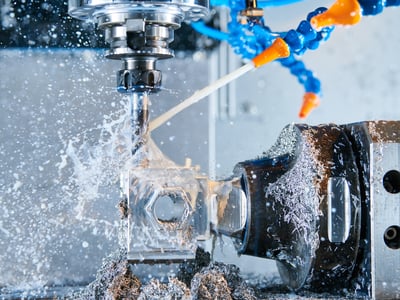
Industrial machining processes generate mist from cooling lubricants which have to be controlled before entering the ambient air. Mist separators extract the process air from the machine tools and separate the emissions from the air stream before returning the cleaned air back into the production or outside into the environment.
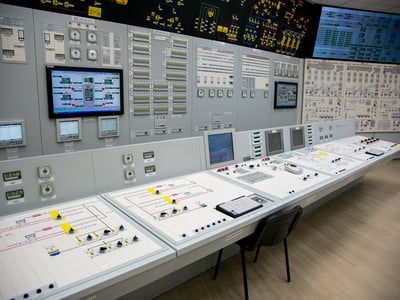
Many industries rely on electronic and electrical control equipment for safe and efficient operation. To avoid unscheduled breakdowns, the equipment must be protected from corrosion originating from chemicals used in their manufacturing processes.
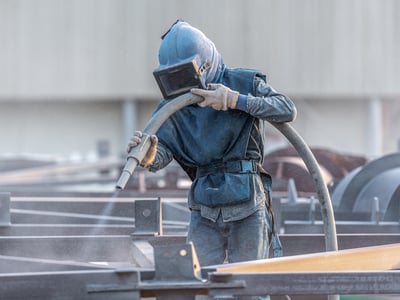
Dry blasting is used to remove contaminants and irregularities from a metal surface to create a specific finish, prepare it for paints or coatings. Dust collectors are the most effect way to capture and collect the particles of abrasive media and contaminate that become airborne during the blasting process.
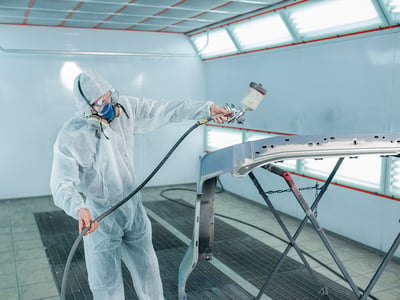
During the painting process, good filtration is crucial for protecting workers from a wide range of particulate and other airborne contaminants being taken in from the paint booth.
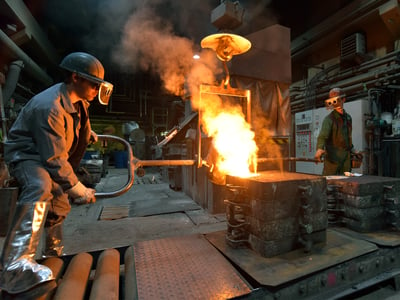
There are different processes in a foundry such as metal casting, sand mold knock-out, grinding or fettling. These emissions are often hazardous to the health of operatives in the workplace and need to be captured and extracted in a controlled manner before they become airborne to reduce the risk of contamination and harm to the personnel.
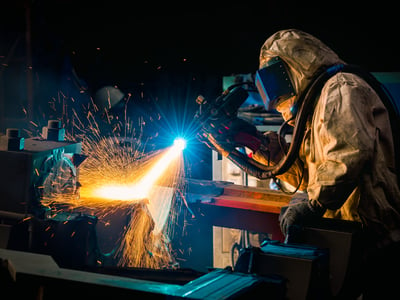
Thermal spraying is a technique where a material, in wire- or powder form, is being melted and transferred with high velocity to the surface of the substrate where it forms a protective coating. The emissions generated from these processes pose a health and safety risk to both operators and the environment.
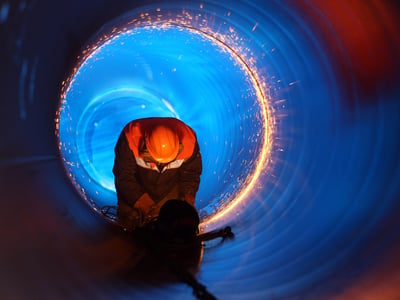
Overexposure to weld fumes can cause a wide range of health problems. Metal dust particles cause eye irritation, upper respiratory irritation and frequent headaches. Capturing dust and fumes generated during welding presents a unique challenge.
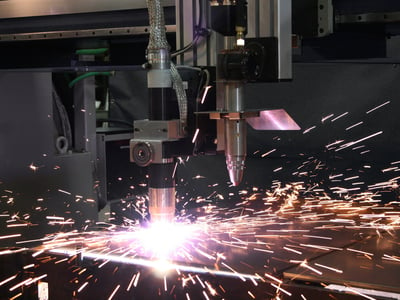
Plasma cutting is used for a variety of metals, including stainless steel, aluminum and copper. Plasma tables generate molten metal, smoke, and gases which can be breathing hazards for machine operators.
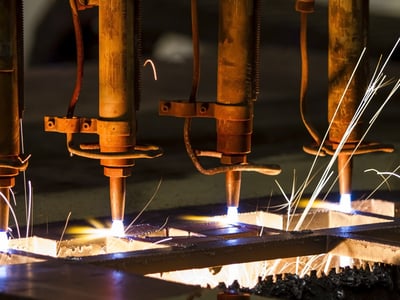
Today's fiber laser tables generate molten metal, smoke and gases, which can pose breathing hazards to machine operators. Good ventilation and high quality filters help to prevent the inhalation of toxic airborne particles.

Did you know Camfil have a full range of retrofit filters that can be utilised in all the most common brands on the market. Camfil filters are not just designed to work but to optimise your dust extraction systems performance
Food and beverage Life science and healthcare Manufacturing and machinery Energy and Power SystemsLearn more on how Camfil´s GoldLink Connect remote monitoring system helped a metalworking company to significantly reduce power consumption and compressed air consumption on their dust collectors.
Food and beverage Life science and healthcare Manufacturing and machinery Case studiesProcesses in manufacturing facilities often generate dust and fumes which for example can pose health risks for your operators or compromise the quality and safety of your products. Determining the right capture and filtration solution helps to protect against the main risks of uncontrolled emissions and thus to create safe work environments.
Often the initial purchase price for air filters or dust collectors is just the tip of the iceberg. The true costs for energy, maintenance and disposal are lurking below the surface. To make the most economic decision in the long-run, a detailed calculation considering all the factors will help to reduce your overall expenditure.
Austrian metalworking company turned to Camfil because they were not satisfied with the performance of their existing extraction system. Camfil´s Gold Series X-Flo dust & fume collector equipped with Dura-Pleat filter cartridges now provides a highly reliable solution for their 24/7 operation while reducing costs for filter replacement and maintenance.
When purchasing dust collection systems and filter cartridges, the initial purchase price is just the tip of the iceberg. The true costs – energy, consumables and operations – are lurking below the surface. The good news is that there are ways to reduce these costs over the long term.
Laser cutting, plasma cutting and oxy-fuel cutting are different machining processes used in the metal producing and metalworking industries, using energy in various forms to cut virtually any shape from iron and nonferrous materials out of sheets or large slabs. During the processes, the materials heat up, melt and cause harmful emissions. If not controlled properly, this airborne dust and fumes pose health risks for operators and cause damage to machinery.
Dust collection systems are all safety devices and thus state-of-the art modern methods of validation and certification are required. Furthermore it is vital to ensure that the system is still in compliance after perhaps changed process conditions, to provide maximum safety for personnel and the facility. It is also recommended to carry out quality audits, process reliability surveys and annual safety inspections.
Dust collection systems are an important part of any manufacturing process, so they need to be sized and designed properly. One critical design component is specifying the proper filtration media, which requires analysis of the dust in the process and all operating conditions.
HemiPleat is, in short, the uniquely, patented media pleating technology Camfil use to create highly efficient filter cartridges that outlast and outperform competitors alternatives.
Almost all industrial manufacturing, processing or packaging applications generate dust as a side effect. Many of these dusts are both combustible as well as explosive, and removing them from the work place can significantly reduce the risk of serious accidents. It is estimated that there are approximately 2,000 dust explosions in Europe annually. Most of these are minor but some are very destructive. So by extracting the dust, the risk in the production is reduced, but unless the extraction system is safe the risk is just moved.
Dust collectors are necessary safety systems in many manufacturing and processing plants, thus as in the food processing industry. But if they are not designed, installed and maintained properly, these systems themselves can cause serious problems. In this eBook we highlight 10 ways how to make sure your dust collection system is up to the tasks of keeping workers safe, maximising production uptime and meeting regulatory compliance.
A properly designed and installed dust collection system will effectively catch, convey and separate hazardous and nuisance dusts. Our new ePoster pinpoints key areas to watch and signs to look for that will help you avoid problems with your dust collection system and to keep up process availability in your production facility.
Not all people who purchase our products are experts in air filtration and they shouldn’t have to be either. The purpose of Camfil City is to give everyone a chance to learn the basics of what our clean air solutions can do for them.
The potential for a combustible dust explosion is a reality in any industrial manufacturing facility. But operations with processes that generate combustible metal dusts are especially at risk and require special consideration when selecting an equipment supplier. Camfil´s new eBook lists seven important considerations for determining whether a dust collector equipment supplier has the knowledge necessary to keep your operation safe and compliant.
Health Risk of Metalworking Fluids
Metalworking facilities must be diligent in controlling harmful dust and fumes, especially those that contain harmful metal particulates from processes such as welding, thermal cutting, sanding and polishing. To better understand what should be considered when handling dust and fumes in metal processing we have created an ebook with 7 tips as a free download.
Welding, grinding and laser/plasma cutting processes produce huge amounts of fine PM1 particles and various harmful gases that cannot be removed from the indoor air by ventilation alone.
In the manufacturing industry air quality can be compromised by the production processes.
Dust is everywhere – in our homes, workplaces and the surrounding environment. One can be annoyed with the dust piled on the surface of the bookshelf but unfortunately there is a darker side; the dust can cause allergies, health problems and expensive issues in production processes and equipment.
GSX collectors are ideal for use in pharma, mining, food and chemical processing industries. They also provide a safer work environment in metalworking applications like welding and cutting.
Case Study: Protecting Family-Owned Auto Body Shop. With a reputation as the best in their area, the third generation, family-owned body shop rehabilitates the exterior of foreign and domestic vehicles as well as motorcycles, specialising in classic and specialty cars.